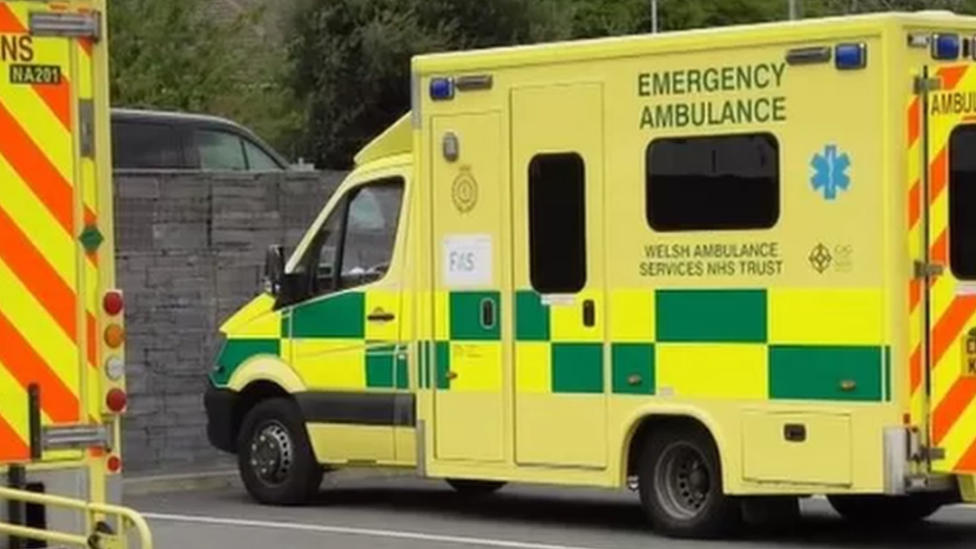Welsh Ambulance: Woman pleaded for help as her husband died
- Published
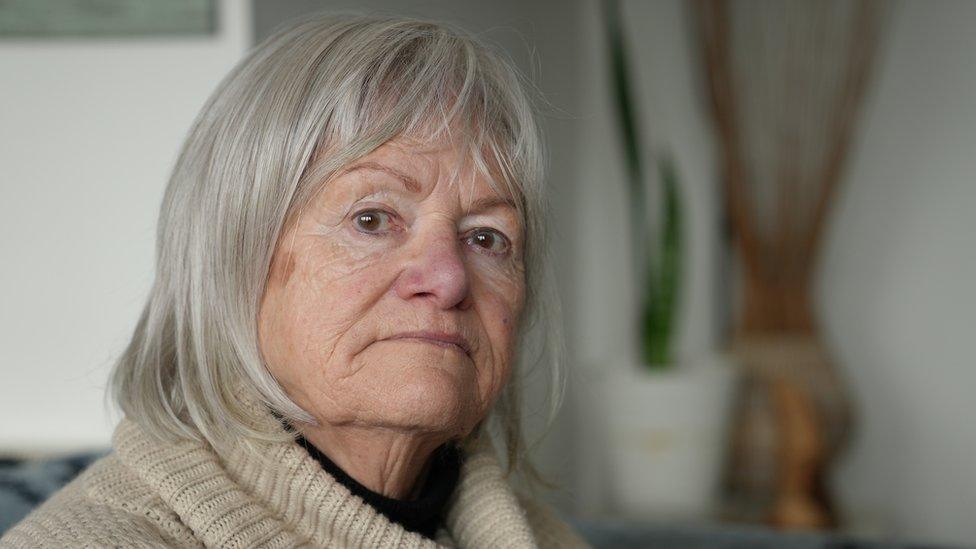
Lesley Weekley believes he husband Rob could still be alive today if an ambulance had been sent sooner
A woman who called 999 six times as her husband suffered a fatal heart attack said she was told he would have survived if paramedics had been sent after her first call.
Rob Weekley, 75, died about four hours after his wife, Lesley, first called 999 in the early hours of 4 January.
"The paramedic said that night, 'had we have come out after your first call he'd have survived'," she said.
The Welsh Ambulance Service said it was not the service it wished to provide.
Lesley, 73, who works as a receptionist at the intensive care unit at University Hospital of Wales in Cardiff, said the couple, from Barry, Vale of Glamorgan, were walking their dog when Rob complained of feeling like his "lunch was sitting on his chest".
The discomfort returned the following day but they put off going to A&E because of waiting times, Lesley said.
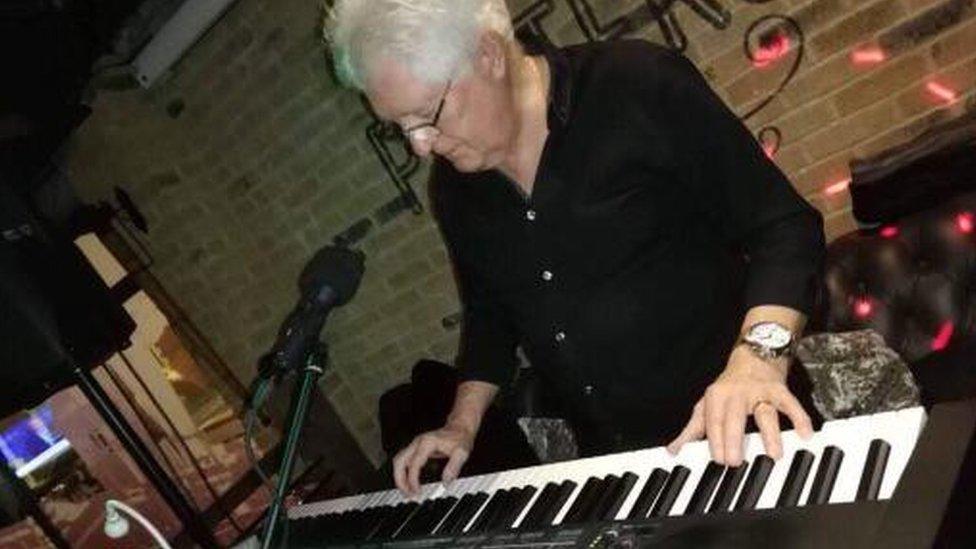
Rob Weekley was "full of life" and "always positive"
The night he died, he woke her asking for indigestion tablets.
"He was almost incoherent icy cold, sweaty and clammy and I couldn't understand what he was saying and I gave him the tablets and he just laid on the bed and straight away I phoned 999," she said.
That was at 1:56 GMT.
"He was conscious at the time, still sort of slurring his words, but he was roaring, holding his head, trying to fight off the feeling... writhing on the floor."
After calling 999, she said she was first told to give Rob four aspirin to suck on, but then later was told not to give him aspirin.
"The fact that they told me to give him aspirin they must have thought it was a heart problem," she said.
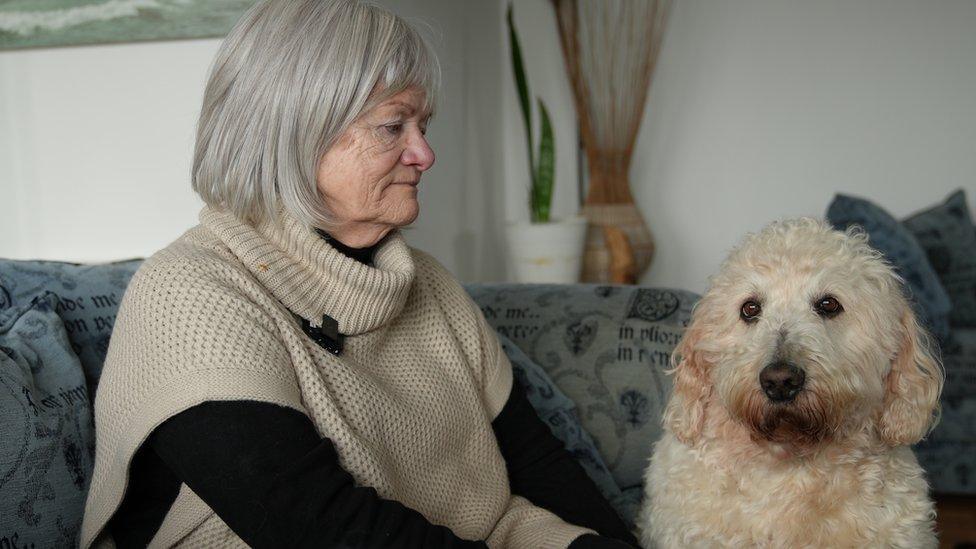
Lesley says her husband first felt discomfort in his chest when they were out walking their dog Booze
She said she could not feel a pulse, but Rob was still breathing, a concern she raised three times with ambulance staff, which she said she thought should have set "alarm bells ringing".
"They didn't say, 'we'll get the ambulance out straightaway'. [They said] 'if he deteriorates, phone us back'."
During her sixth call to 999 Rob stopped breathing.
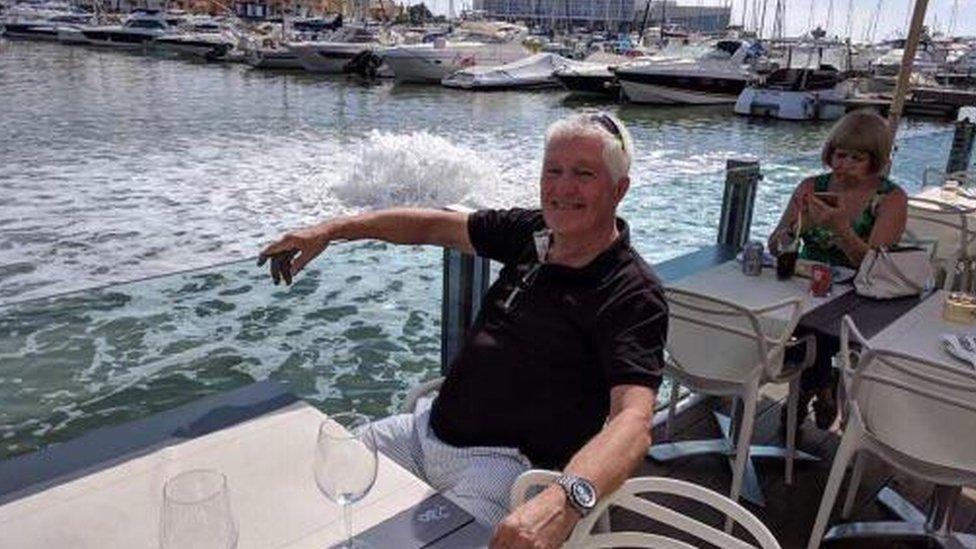
Rob was an architect who sang with the London Welsh male voice choir
She started doing CPR, continuing as best she could until an ambulance arrived after about 20 minutes.
But she said towards the end she "wasn't doing it properly because my arms were so tired and I was sweating".
She said the paramedics were "just amazing" trying to revive Rob, but stopped at about 04:45.
Lesley said through her work in the hospital she had seen staff and a system under "extreme" pressure.
She said she wanted someone to "sit up and take notice that we are not just statistics, we are loving families" and called for something "drastic" to be done.
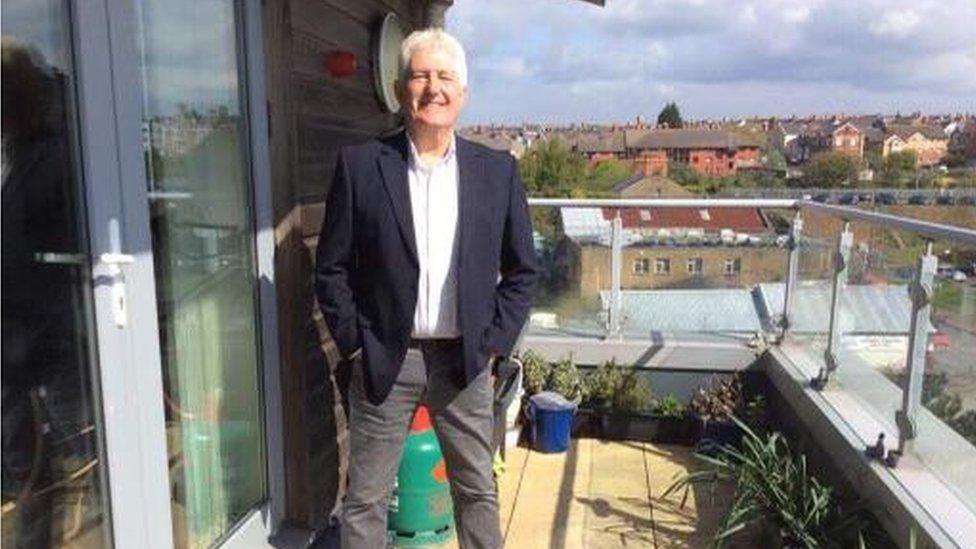
Rob and Lesley lived in a flat in Barry
Liam Williams, the executive director of quality and nursing at the Welsh Ambulance Service, said: "We are really sorry to hear about such a distressing incident, and we send our deepest condolences to Mrs Weekley and her family.
"This is not the service we aim to deliver, and we know that this must have been a very upsetting and traumatic experience."
"We will be contacting Mrs Weekley to listen to her concerns, investigate the circumstances of our response and to answer any questions she may have."
Related topics
- Published11 January 2023
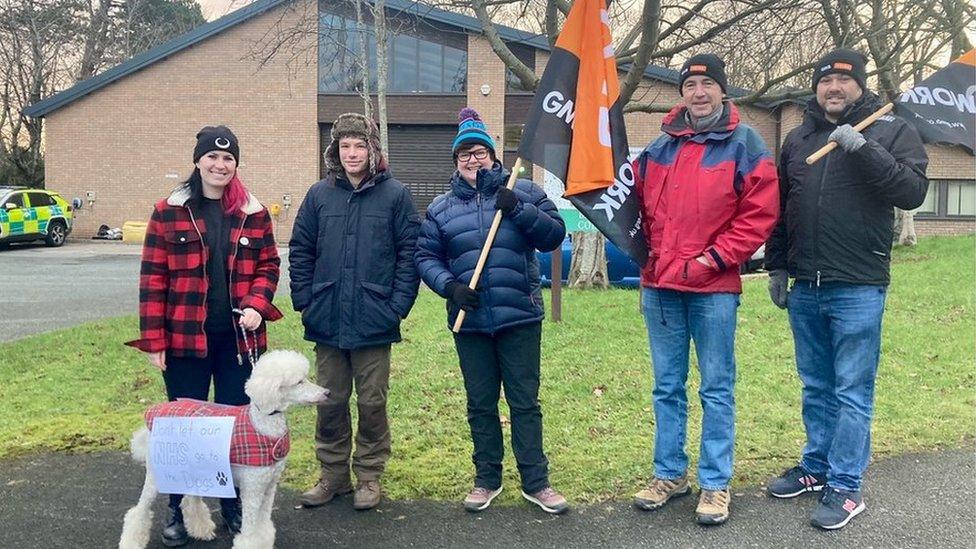
- Published10 January 2023
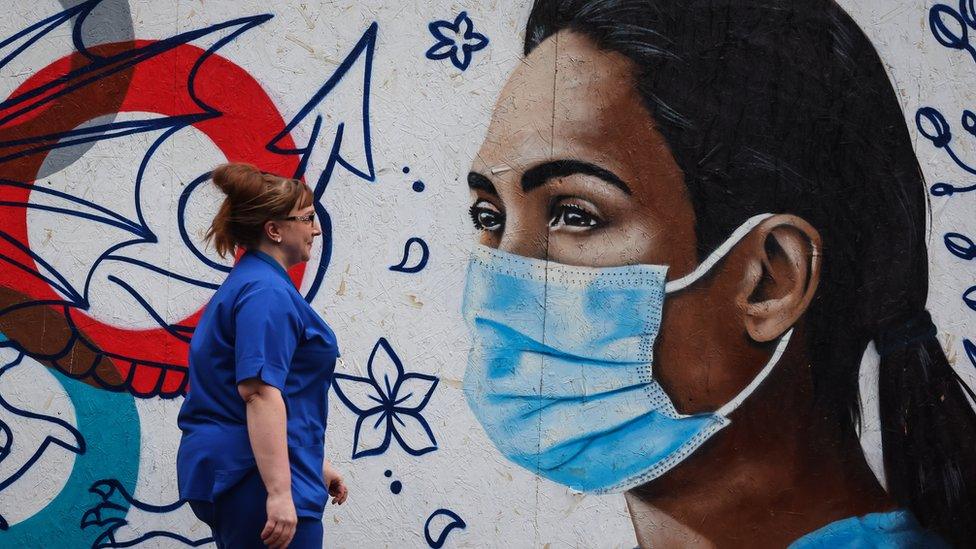
- Published12 January 2023
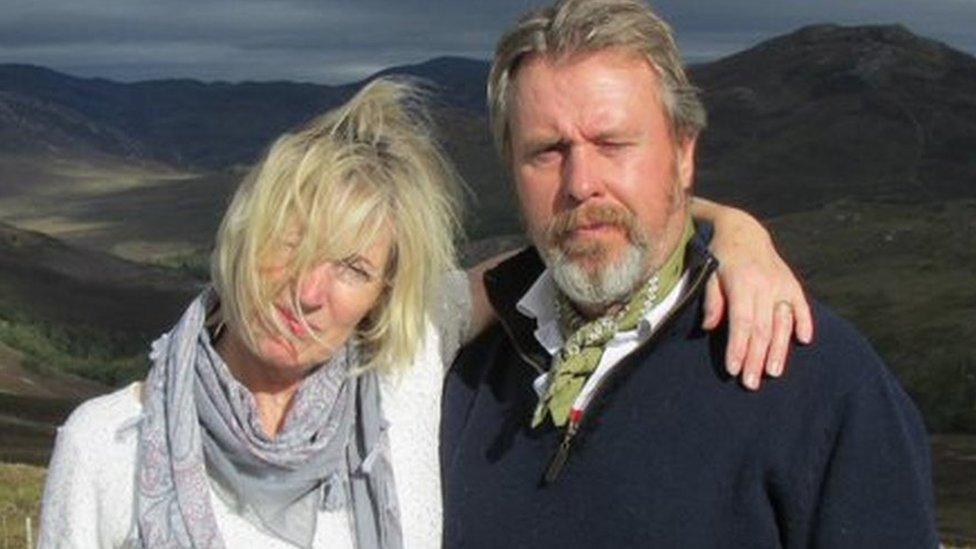
- Published31 December 2022
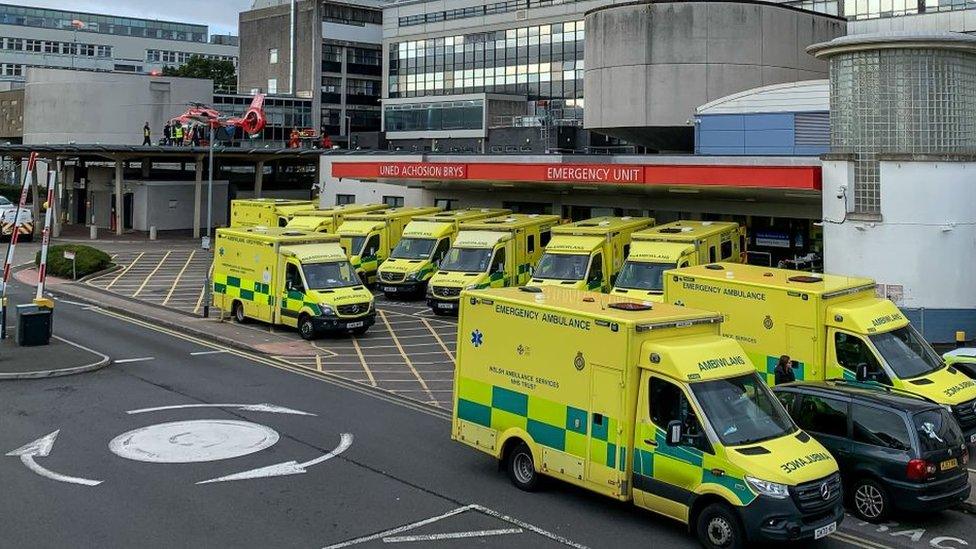
- Published23 September 2022
